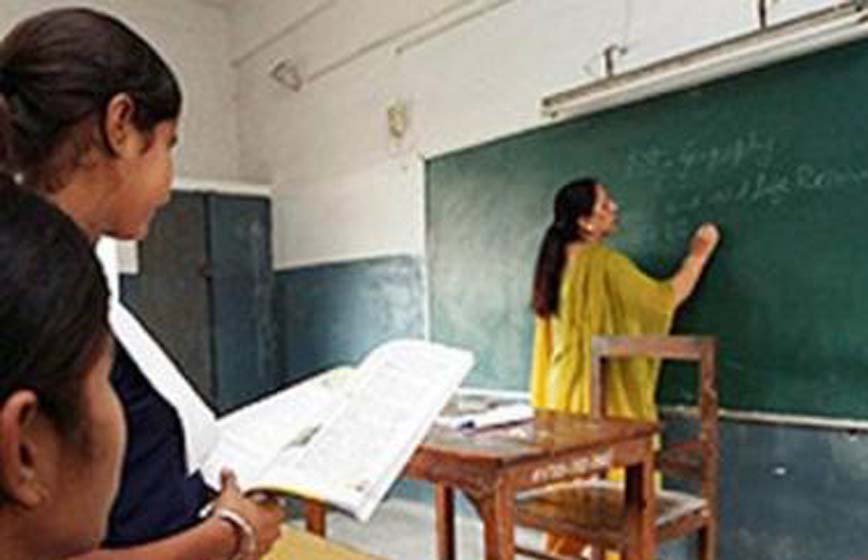New Education Policy
Evolution of Education Policy
- University Education Commission (1948-49)
- Secondary Education Commission (1952-53)
- Education Commission (1964-66) under Dr. D.S. Kothari
- National Policy on Education, 1968
- 42nd Constitutional Amendment,1976-Education in Concurrent List
- National Policy on Education (NPE), 1986
- NPE 1986 Modified in 1992 (Program of Action, 1992)
- T.S.R. Subramaniam Committee Report (27 May, 2016)
- Dr. K. Kasturirangan Committee Report (31 May, 2019)
NEP 2020 : Consultation Process
- Online : www.MyGov.in (26.01.2015 – 31.10.2015)
- Nearly 2.5 lakhs Gram Panchayats, 6600 Blocks, 6000 ULBs, 676 Districts (May-
Oct. 2015) - Draft NEP, 2019 Summary in 22 languages/Audio Book
- Education Dialogue with MPs (AP, Kerala, Telangana, TN, Puducherry, Karnataka &
Odisha) - Special Meeting of CABE (21.09.2019) •Parliamentary Standing Committee on HRD on 07.11.2019
Major Reforms : Higher Education
- 50 % Gross Enrolment Ratio by 2035
- Holistic and Multidisciplinary Education -Flexibility of Subjects
- Multiple Entry / Exit
- UG Program – 3 or 4 year
- PG Program – 1 or 2 year
- Integrated 5 year Bachelor’s / Master’s
- M Phil to be discontinued
- Credit Transfer and Academic Bank of Credits
- HEIs : Research Intensive/Teaching Intensive Universities and Autonomous Degree Granting Colleges
- Model Multidisciplinary Education and Research University (MERU) (in or near every District)
- National Research Foundation (NRF)
- Internationalisation of Education
- Integration of Vocational, Teacher and Professional Education
- Setting up of New Quality HEIs has been made Easier
- Standalone HEIs and Professional Education Institutions will evolve into Multidisciplinary
- Special Education Zone for Disadvantaged Regions
- National Institute for Pali, Persian and Prakrit
- National Educational Technology Forum (NETF)
- MHRD to be renamed as M/o Education
Indian Knowledge Systems, Languages, Culture and Values
• Focus on Literature & Scientific Vocabulary of Indian Languages
• Language Faculty
•Research on Languages
• Strengthening National Institutes for promotion of Classical Languages & Literature
• Indian Institute of Translation and Interpretation (IITI)
• Cultural Awareness of our Indian Knowledge Systems
•Promoting Traditional Arts / Lok Vidya
• HEI / School or School Complex to have Artist(s)-in-Residence
Use of Technology
•Use of Technology in • Education Planning
• Teaching, Learning & Assessment
• Administration & Management
• Regulation – Self Disclosure & Minimum Human Interface
•Increasing Access for Disadvantaged Groups •Divyang Friendly Education Software
•e-Content in Regional Languages
•Virtual Labs
•National Educational Technology Forum (NETF)
•Digitally Equipping Schools, Teachers and Students
Major Changes from NPE 1986: School
• Universalization of Early Childhood Care Education (ECCE)
• National Mission on Foundational Literacy and Numeracy
• 5+3+3+4 Curricular and Pedagogical Structure
• Curriculum to integrate 21st Century Skills, Mathematical Thinking and Scientific temper
• No Rigid Separation between Arts & Sciences, between Curricular and extra-Curricular activities, between Vocational and Academic streams
• Education of Gifted Children • Gender Inclusion Fund
• KGBVs upto Grade 12
• Reduction in Curriculum to Core Concepts
• Vocational integration from class 6 onwards
• New National Curriculum Framework for ECE, School, Teachers and Adult Education
• Board Examination will be Low Stakes, Based on Knowledge Application
• Medium of Instruction till at least Grade 5, and preferably till Grade 8 and beyond in Home Language / Mother tongue/ Regional Language
• 360 degree Holistic Progress Card of Child • Tracking Student Progress for Achieving Learning Outcomes • National assessment center – PARAKH
• NTA to offer Common Entrance Exam for Admission to HEIs
• National Professional Standards for Teachers (NPST)
• Book Promotion Policy and Digital Libraries
• Transparent online self disclosure for public oversight and accountability
Outcomes of NEP 2020
• Universalization from ECCE to Secondary Education by 2030, aligning with SDG4
• Attaining Foundational Learning & Numeracy Skills through National Mission by 2025
• 100% GER in Pre-School to Secondary Level by 2030
• Bring Back 2 Cr Out of School Children • Teachers to be prepared for assessment reforms by 2023
• Inclusive & Equitable Education System by 2030
• Board Exams to test core concepts and application of knowledge
• Every Child will come out of School adept in at least one Skill
• Common Standards of Learning in Public & Private Schools


Comments are closed, but trackbacks and pingbacks are open.